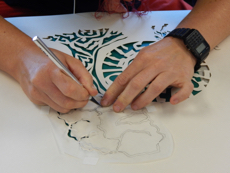Diabetes is a chronic metabolic problem defined by high blood glucose degrees. It impacts millions of individuals globally as well as can have serious effects on one’s wellness otherwise taken care of appropriately. There are a number of kind ottomax pluss of diabetes mellitus, each with its own distinctive features as well as complications. In this write-up, we will look into the various types of diabetes and go over which type is taken into consideration even worse.
Type 1 Diabetic Issues: Comprehending the Fundamentals
Kind 1 diabetes, also known as insulin-dependent diabetic issues mellitus (IDDM) or adolescent diabetic issues, is an autoimmune problem where the body’s body immune system wrongly strikes and also damages the insulin-producing cells in the pancreatic. Therefore, the pancreas creates little to no insulin, a hormone that enables sugar to go into cells and also be used for power.
Kind 1 diabetic issues commonly establishes in childhood or very early their adult years and also requires day-to-day oculax insulin injections or making use of an insulin pump to control blood sugar level degrees. Individuals with type 1 diabetes mellitus have to very closely monitor their blood glucose levels, adhere to a healthy diet plan, as well as take part in regular exercise to manage their problem successfully.
Issues connected with type 1 diabetes consist of diabetic ketoacidosis (DKA), a potentially life-threatening problem identified by high blood sugar levels, dehydration, and the existence of ketones in the pee. Long-term problems can also occur, such as heart disease, nerve damages, kidney disease, as well as eye issues.
- Kind 1 diabetic issues is taken into consideration an autoimmune disease without any well-known cure.
- Individuals with kind 1 diabetes call for lifelong insulin treatment.
- Strict blood glucose administration is vital to stop issues.
Type 2 Diabetes Mellitus: A Common and also Complex Problem
Kind 2 diabetes mellitus, additionally referred to as non-insulin-dependent diabetic issues mellitus (NIDDM), is one of the most prevalent type of diabetes, making up roughly 90% of all identified instances. Unlike type 1 diabetic issues, type 2 diabetic issues is defined by insulin resistance, where the body’s cells come to be much less receptive to insulin or do not use it successfully.
Various aspects contribute to the development of kind 2 diabetes mellitus, consisting of hereditary proneness, obesity, less active lifestyle, inadequate diet regimen, as well as progressing age. While it commonly occurs in grownups, an increasing variety of youngsters and also teenagers are likewise being identified with type 2 diabetes mellitus due to the obesity epidemic.
At first, individuals with kind 2 diabetes might not call for insulin treatment as well as can manage their problem through lifestyle adjustments, such as embracing a healthy and balanced diet regimen, participating in regular workout, and also dropping weight if needed. However, as the disease proceeds, some individuals might ultimately require insulin or other medications to control their blood sugar degrees.
Difficulties of kind 2 diabetics issues resemble those of type 1 and also can include heart disease, stroke, kidney illness, nerve damages, and eye troubles. Improperly handled kind 2 diabetic issues can also result in reduce injury healing and also a raised danger of infections.
Gestational Diabetes: Issues During Pregnancy
Gestational diabetes mellitus (GDM) creates during pregnancy as well as affects about 7% of all pregnancies. It happens when hormonal changes while pregnant bring about insulin resistance, resulting in raised blood sugar levels.
Gestational diabetic issues commonly resolves after giving birth, but females who have actually had it go to higher threat of creating type 2 diabetes mellitus in the future. Additionally, infants birthed to moms with gestational diabetes might be at risk of macrosomia (having a high birth weight) and hypoglycemia (reduced blood sugar) after birth.
- Gestational diabetes typically deals with after giving birth.
- Ladies with gestational diabetics issues have actually an enhanced danger of establishing kind 2 diabetes later on in life.
- Babies born to moms with gestational diabetic issues can have issues.
Maturity-Onset Diabetes Mellitus of the Young (MODY): An Unusual Hereditary Type
Maturity-onset diabetes of the young (MODY) is an uncommon kind of diabetes mellitus triggered by genetic anomalies inherited from one or both moms and dads. Unlike type 1 as well as type 2 diabetic issues, MODY is generally diagnosed in adolescence or very early the adult years as well as is defined by impaired insulin secretion.
There are a number of subtypes of MODY, each connected with specific gene mutations. This form of diabetes mellitus is typically initially misdiagnosed as kind 1 or kind 2 diabetic issues. Therapy for MODY varies relying on the certain subtype and also might include dental medicines or insulin treatment.
Finally,
All types of diabetes need cautious management as well as interest to avoid complications. While each type has its own special qualities and also challenges, it is difficult to definitively state which kind is worse. Kind 1 diabetes mellitus demands long-lasting insulin therapy, while kind 2 diabetes mellitus typically needs way of life modifications and might advance to insulin treatment gradually. Gestational diabetes mellitus is an issue while pregnant, as well as MODY is an unusual genetic kind.
If you suspect you have diabetics issues or have issues regarding your blood glucose levels, it is vital to look for medical guidance and also receive an exact diagnosis. Remember, very early discovery and also proper therapy are vital to handling diabetes mellitus successfully and also preserving optimum wellness.























































